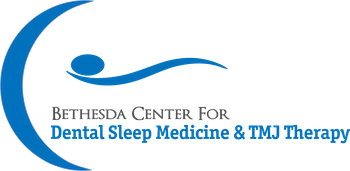Oral Appliance Therapy - Bethesda, MD
A common method of sleep apnea treatment involves a CPAP machine. If you've ever used this system, you know how loud and cumbersome it is. Patients have difficulty adjusting to sleeping with the CPAP mask over their face, sleeping with the noise of the respirator, and traveling with the bulky equipment. Patients who have used the CPAP and discontinued treatment are said to be CPAP intolerant. Keep reading to learn more about our CPAP alternative, sleep apnea oral appliance therapy in Bethesda, MD.
When Should You Consider an Oral Appliance?
- If you've been diagnosed with mild or moderate sleep apnea
- If you've undergone surgery, but found no relief
- If you can't tolerate the CPAP device
- When your sleep partner tells you that you snore loudly every night
- If you frequently travel and need a more portable option
Oral appliance therapy is an effective alternative to CPAP. Instead of a noisy respirator and a facial mask, the patient simply wears an appliance during sleep. That sounds simple enough... but how can an oral appliance treat sleep apnea?
An Alternative for CPAP Intolerant Patients
Oral appliances work by repositioning the jaw or tongue forward, which opens airways and allows the wearer to breathe easy while sleeping. Similar to an athletic mouth guard or orthodontic retainer, oral appliances are custom-made for each patient for a snug fit that offers maximum tolerance. They’re easy to use and clean, and they slip into a compact, protective case for easy traveling.
CPAP intolerant patients have found relief from snoring and sleep apnea with oral appliance therapy. The appliance is thin, flexible, and portable, offering relief that's comfortable and effective.
What Should I Expect with an Oral Appliance?
Though most sleep apnea patients adjust well to oral appliance therapy, some may experience slight side effects when they first begin wearing an oral appliance. Effects are usually minor and temporary, and may include the following:
- A tense or clicking jaw
- Sore teeth and gums
- Increased salivation or dry mouth
- Feeling as though your bite is slightly off in the morning
These symptoms often disappear after a few nights.
Recommendations from the AASM and the AADSM
When it comes to sleep apnea therapy, The American Academy of Sleep Medicine (AASM) and the American Academy of Dental Sleep Medicine (AADSM) offer guidance and set standards for patient care. Dr. Greenbaum is dedicated to providing care that meets and exceeds these standards!The AASM and AADSM recommend patients seek treatment from a dental practitioner using oral appliance therapy in the following situations:
- Oral appliance therapy can be used to treat loud or consistent snoring even if patients are not diagnosed with sleep apnea. Working with a dentist to relieve the effects of this system using a customized oral appliance offers maximum improvements for patients.
- If a sleep physician recommends oral appliance therapy as the best treatment option for patients, it’s essential that they seek care from a qualified dentist. Custom, titratable appliances crafted by a dental professional are more comfortable and effective, and improve the chances patients will remain in compliance -- especially when compared with non-custom appliances.
- If patients try CPAP and fail to remain in compliance,or find themselves intolerant to CPAP treatment, the sleep physician should recommend oral appliance therapy rather than no treatment for sleep apnea. It is advised that sleep physicians partner with a qualified dental sleep medicine expert to provide comfortable, effective relief for patients.
- If patients receive an oral appliance from their sleep physician or other medical professional, they should see a dentist for follow up. These appliances may, rarely, have side effects that damage or impede oral function.
- Once a patient is fitted with an oral appliance, follow up sleep testing is recommended to ensure the efficacy of the appliance in treating the patient’s apnea.
- A plan for follow up appointments with sleep physicians and dentists should be developed in order to ensure patient’s ongoing successful treatment.
If you're tired of your CPAP and would like a convenient alternative, contact Dr. Greenbaum for a free consultation. Oral appliance therapy can restore silent, refreshing sleep and greatly improve your day-to-day quality of life.
